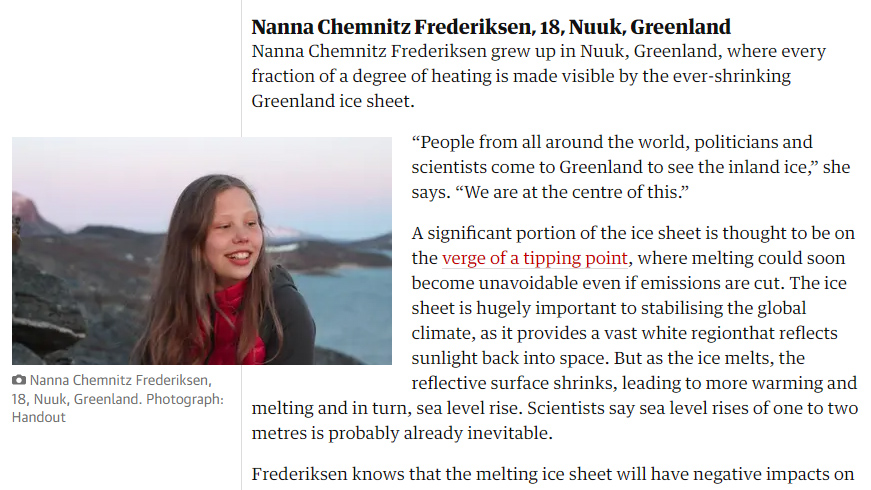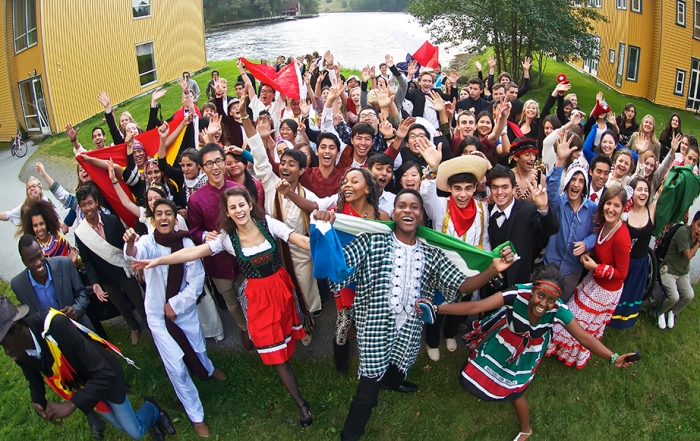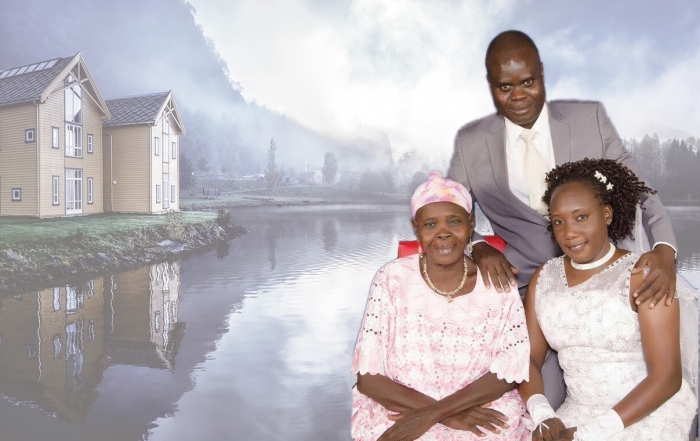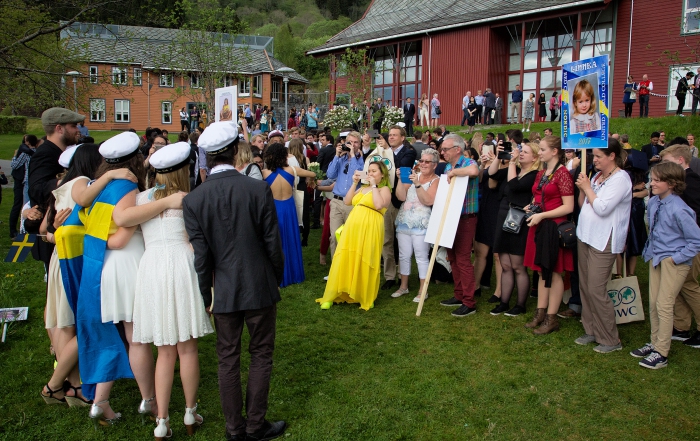“People from all around the world, politicians and scientists come to Greenland to see the inland ice,” she says. “We are at the centre of this.”
A significant portion of the ice sheet is thought to be on the verge of a tipping point, where melting could soon become unavoidable even if emissions are cut. The ice sheet is hugely important to stabilizing the global climate, as it provides a vast white region that reflects sunlight back into space. But as the ice melts, the reflective surface shrinks, leading to more warming and melting and in turn, sea level rise. Scientists say sea level rises of one to two metres is probably already inevitable.
Frederiksen knows that the melting ice sheet will have negative impacts on communities across Greenland, especially in northern settlements such as Qaanaaq where permafrost melting is destabilizing homes and roads and impacting how fishers and hunters operate.
But her real concern lies on the impact it will have globally. “I am not so scared of what the effects of the melting of ice in Greenland will be,” Frederiksen says, “It scares me what effect it can have for the rest of the world.”
Latest News
Jubilee Fund – Support Us
September 2015 marked the 20th anniversary of the opening of UWC Red Cross Nordic and provided us with the opportunity to celebrate the history of the College and its commitment to peace and a sustainable [...]
Justin Tata (’00 – ’02)
As a young boy, I soon had to get used to fleeing from the violence of civil war. For two years, we roomed the jungles. During the day, bombs rained on us, and at nights [...]
Graduation Ceremony 2017
Graduation took place on Saturday 20th May at UWC Red Cross Nordic. It was a pleasure to welcome so many families, host families from our local community and other guests on Friday evening for dinner [...]




